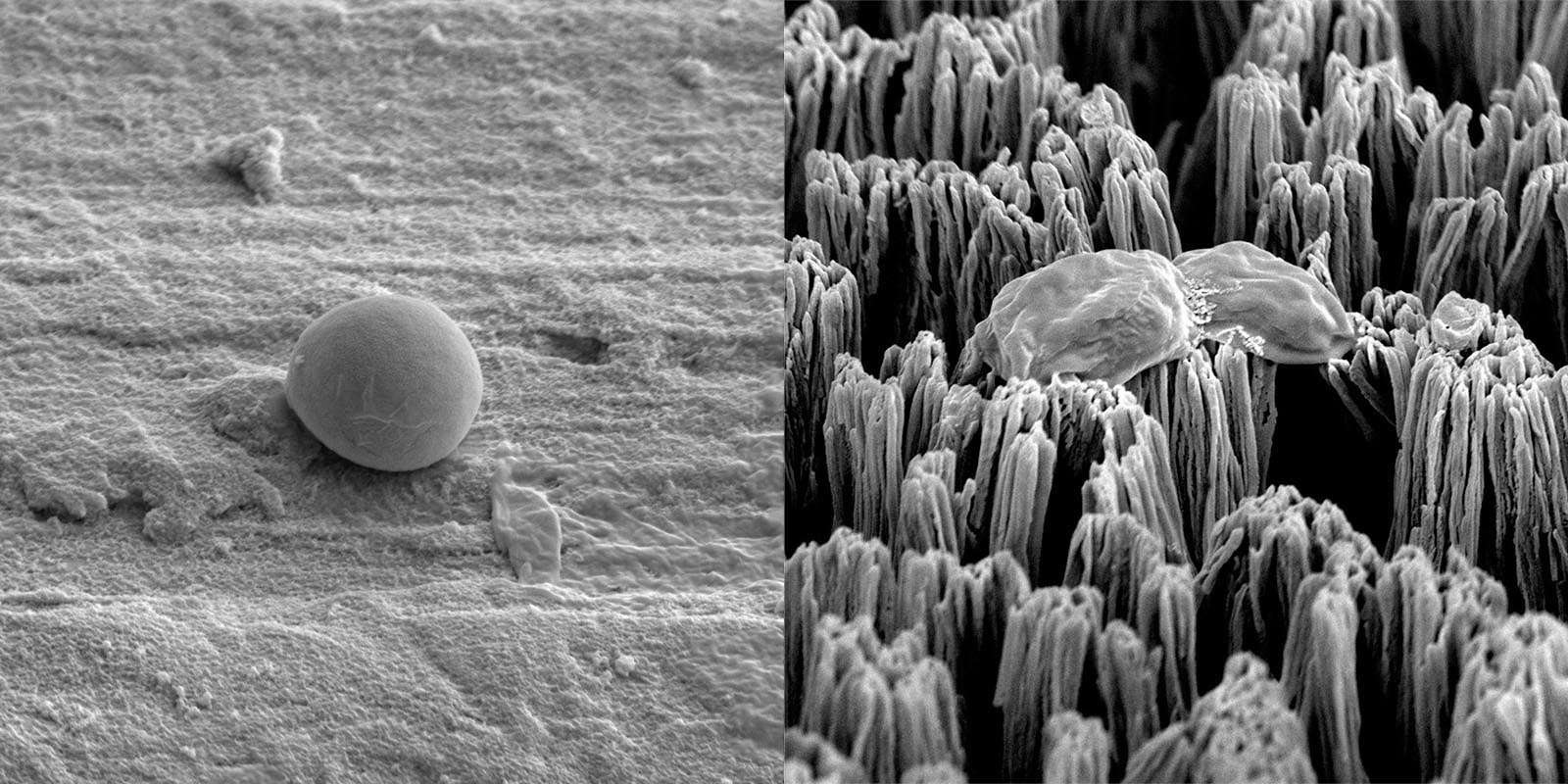Titanium micro-spikes skewer resistant superbugs
Date: 30.8.2023
A new study suggests rough surfaces inspired by the bacteria-killing spikes on insect wings may be more effective at combating drug-resistant superbugs, including fungus, than previously understood.
 To avoid infection around implants – such as titanium hips or dental prosthesis – doctors use a range of antimicrobial coatings, chemicals and antibiotics, but these fail to stop antibiotic-resistant strains and can even increase resistance.
To avoid infection around implants – such as titanium hips or dental prosthesis – doctors use a range of antimicrobial coatings, chemicals and antibiotics, but these fail to stop antibiotic-resistant strains and can even increase resistance.
To address these challenges, RMIT University scientists have designed a pattern of microscale spikes (height 3.5 µm) that can be etched onto titanium implants or other surfaces to provide effective, drug-free protection from both bacteria and fungus.
The team's study published in Advanced Materials Interfaces tested the effectiveness of the altered titanium surface in killing multi drug-resistant Candida – a potentially deadly fungus responsible for one in 10 hospital-acquired medical device infections.
The specially-designed spikes, each of a height similar to that of a bacteria cell, destroyed about half the cells soon after contact. Significantly, the other half not immediately destroyed were rendered unviable from the injuries sustained, unable to reproduce or cause infection.
Image source: RMIT.























